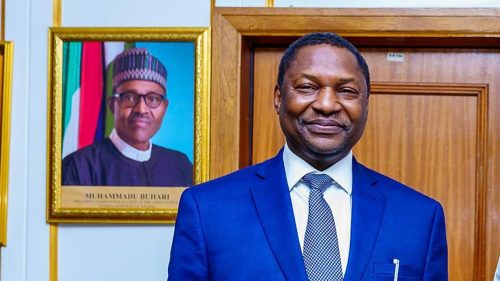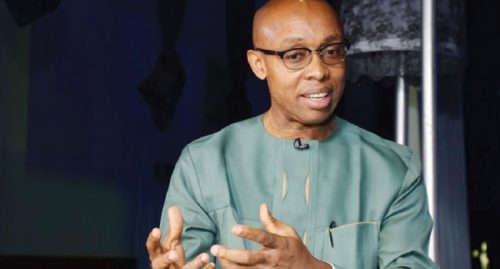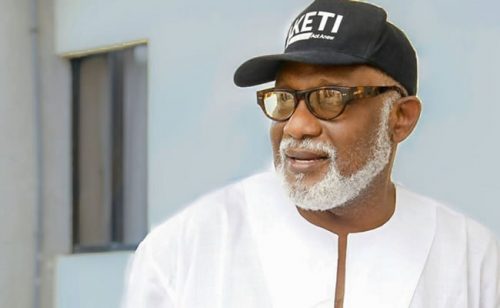Nigeria’s AI Boom is Built on Borrowed Money

Nigeria stands at a critical, paradoxical juncture in its technological development. The nation is unequivocally the leader in West Africa’s burgeoning Artificial Intelligence (AI) race, demonstrating strong implementation, ambitious projects, and an ability to attract significant foreign investment. Yet, this impressive facade of progress masks a deep, structural vulnerability that threatens to stall its ambitions before they are fully realised.
According to a new report, “The State of AI Policy in Africa 2025,” Nigeria’s entire National Artificial Intelligence Strategy (NAIS) is being built on a fragile foundation, dangerously reliant on the goodwill of external partners and lacking the crucial support of dedicated domestic funding.
The report paints a stark picture: while Nigeria excels in deploying AI initiatives, from local language models to public health hubs, its strategy is critically undermined by a lack of “explicit budget lines or projections”. This gap means the nation’s AI future is tethered to the priorities of foreign corporations and international bodies, not a sovereign, self-sustaining plan.
This central paradox—of high implementation and low-state investment—raises a critical question: Can Nigeria maintain its leadership position and truly harness AI for national development, or will its ambitions crumble under the weight of a strategy that it is not willing to pay for?
A Flurry of Activity, A Vote of Confidence
Nigeria’s leadership in AI is not just theoretical; it is built on a series of tangible, high-profile achievements and a wave of massive international investment. The report highlights that the global community has, in effect, placed a significant bet on Nigeria’s potential. In 2024 alone, international partners including UNDP, UNESCO, Meta, Google, and Microsoft collectively contributed US$3.5 million for the initial rollout of AI programs in the country.
This, however, was just a precursor. The foreign vote of confidence is more accurately measured in the hundreds of millions of dollars pouring into the nation’s digital infrastructure. This includes Rack Centre’s US$120 million data centre, OADC’s new US$240 million hyperscale facility, a N100 million AI Fund from Google, and a further US$1 million local investment from Microsoft. This influx of capital demonstrates a strong global belief that Nigeria is the market to watch in West Africa.
The Nigerian government has leveraged this momentum to make measurable progress in deploying practical AI solutions. Earlier this year, the nation launched N-ATLAS, an ambitious multilingual language model designed to support Yoruba, Hausa, and Igbo, a significant step in creating inclusive technology. In a separate, landmark deal, the government established an AI Scaling Hub in partnership with the Gates Foundation, explicitly targeting the expansion of AI in critical sectors like health, education, and agriculture. The technology is also being applied in social welfare programs, with AI tools being used to map urban poverty, demonstrating a direct, practical benefit for citizens.
This flurry of activity has been supported by a robust public engagement strategy. A four-day workshop in April 2024 brought together stakeholders from academia, civil society, and the private sector, with further input gathered through online consultations.
This was followed by targeted UNESCO training sessions for civil servants in early 2025. The push for adoption has also moved beyond the federal level, with states like Edo, Sokoto, and Imo hosting their own local AI workshops to accelerate adoption and build grassroots understanding.
In every measurable way, Nigeria’s “participation and implementation” is strong. It is attracting more money, building more projects, and engaging more stakeholders than any of its regional neighbours. But it is this very success that makes the findings of the 2025 report so alarming.
The Missing Pillar: A Strategy Without a Budget
The “State of AI Policy in Africa 2025” report delivers a blunt and concerning verdict on Nigeria’s approach: “Funding remains the weakest area”.
Despite the impressive list of achievements, the National Artificial Intelligence Strategy (NAIS) itself is a hollow document in the one area that matters most. It “lacks explicit budget lines or projections” and has no “statutory backing”. This means that while Nigeria has a wish list, it has no shopping list—and no wallet. The entire grand strategy is, according to the report, “relying on external partners”.
This complete reliance on foreign funding creates a cascade of severe risks. Firstly, it places the nation’s strategic priorities in the hands of foreign entities. When external partners pay the bills, they invariably get to set the agenda. This could lead to a future where Nigeria’s AI development is skewed towards the commercial interests of Silicon Valley or the specific (and often narrow) developmental goals of international NGOs, rather than Nigeria’s own sovereign interests.
Secondly, this reliance is unstable. Foreign investment can be fickle, and a change in global economic conditions, corporate strategy, or geopolitical sentiment could see the US$3.5 million in programmatic funding vanish, leaving Nigeria’s AI hubs and projects stranded. Without dedicated, multi-year domestic budgets, there is no long-term sustainability.
The report’s regional context provides a stark contrast. Senegal, for example, is the only West African country with a “fully costed artificial intelligence strategy,” having allocated a specific $46 million for research and training. While Nigeria’s foreign-backed infrastructure investments are larger in scale, Senegal’s domestic commitment shows a level of state seriousness that is currently absent in Nigeria.
This funding gap is compounded by a regulatory one. The report notes that “no West African country has yet enacted AI-specific laws,” leaving regulatory frameworks “largely informal. For Nigeria, this is a dangerous combination.
The country is encouraging a massive influx of foreign-backed AI technology without the domestic funding to build its own alternatives or the local laws to regulate the new landscape. It is, in effect, building a high-tech society on a foundation of political quicksand.
To move from this precarious position to one of stability and self-determination, the report suggests a clear, four-pronged path forward.
First, Nigeria must move beyond high-level principles and “enact clear, enforceable AI laws”. This includes ensuring “algorithmic accountability” and training the judiciary to handle complex tech-related cases. Ethical literacy must be integrated across universities, government, and industry.
Second, the nation must “invest in local talent and training”. A strategy is useless without the human capacity to execute it. This requires building “representative datasets” (to avoid bias), expanding AI infrastructure that is locally owned, and promoting “regional collaboration to share resources”.
Third, and most critically, Nigeria must “establish dedicated, multi-year AI budgets”. The state must have its own skin in the game. This can be supported by public-private partnerships, but the core funding cannot be left to chance or charity. The report suggests creating “AI funding councils” and linking public procurement to transparency and local content.
Finally, the report calls for a harmonized regional and global stance. This includes harmonizing data standards across regional blocs, supporting joint AI projects, and “protecting intellectual property collectively”. All of this, the report concludes, requires “strong political leadership” to prioritize AI, maintain consistency, and “position Africa as a credible player in global AI governance”.
Nigeria’s potential as an AI powerhouse is undeniable. It has the talent, the market, and the proven ability to implement complex projects. But as the 2025 report makes clear, a strategy without a budget is not a strategy at all—it is a hope. Without a serious, sovereign financial commitment, Nigeria’s AI leadership will remain a paradox, a bright and promising future funded, owned, and ultimately controlled by everyone but Nigeria itself.











